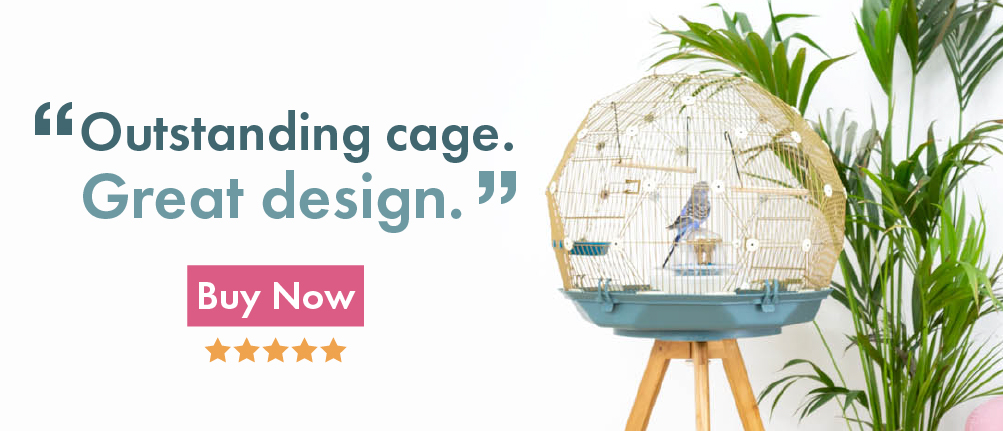If you’re sourcing your own ‘wild’ sticks, you need to avoid any wood that might be toxic. It’s best to stick to native tree species, mainly because not all ornamental woods have been tried and tested in budgie cages. The following list includes native European tree wood that’s definitely okay for budgie perches:
- Apple
- Ash
- Birch
- Beech
- Crab apple
- Elm
- Hawthorn
- Larch
- Lilac
- Maple
- Mountain ash (rowan)
- Mulberry
- Poplar
- Willow
- Rose
- Spruce
- Sycamore
- Almond
- Bamboo
- Cottonwood
- Date
- Douglas fir
- Dracaena
- Eucalyptus
- Fig
- Ginkgo
- Grape vines
- Hibiscus
- Hickory
- Lemon
- Lime
- Orange
- Palm
- Rubber plant
- Tree fern
- Yucca

Wood isn't just for perching
These common non-native species are also safe to use:
Lots of other woods are probably perfectly safe to use, but why risk it? The list above includes species that most budgie owners will be able to source easily.
Most shop-bought perches are made from untreated pine, of the kind used in dowels, and this is fine. But avoid fresh pine, which has a sticky resin. Balsa wood is safe, but won’t last very long as a perch: an industrious budgie will chew through in a few days!
Unsafe Wood for Budgies
Rather than list hundreds more ‘budgie safe’ trees, it’s far more useful to have an ‘avoid’ list. The following common wild, garden and parkland species have been implicated in budgie health problems, so don’t use any of these as perches:
- Alder
- Apricot
- Azalea
- Box elder
- Boxwood
- Buckthorn
- Burdock
- Cedar
- Elder
- Heather
- Holly
- Horse chestnut
- Huckleberry
- Hydrangea
- Jasmine
- Juniper
- Laburnum
- Laurel
- Mango
- Myrtle
- Nectarine
- Nutmeg
- Oak
- Mistletoe
- Oleander
- Peach
- Plum
- Privet
- Rhododendron
- Sage
- Tobacco
- Walnut
- Witch hazel
- Wisteria
- Yew
Avoid any treated woods unless obtained from a reputable pet dealer. Driftwood found on a beach will always be tempting as a cage ornament, but because you can’t always tell which species the wood came from, nor the toxic things it might have been in contact with, it’s best to avoid introducing it to cages.




Comments
Gillian, 10 August 2022
What is the source for this information? Is it written by an avian vet?
Patty, 7 May 2022
Is the bark of a Brazilian red pepper tree safe to use in an outdoor aviary as a perch for sun conures and red breasted Moustache parakeets?
Kate, 15 October 2021
I would like to know if bay tree branches and Rosemary branches are safe? I can’t find any reference to either.
Yuchen, 30 June 2021
Is Broad-leafed Mahogany and Senegal Mahogany good for budgies?
Royan, 2 May 2021
Is betulaceae good for birds?